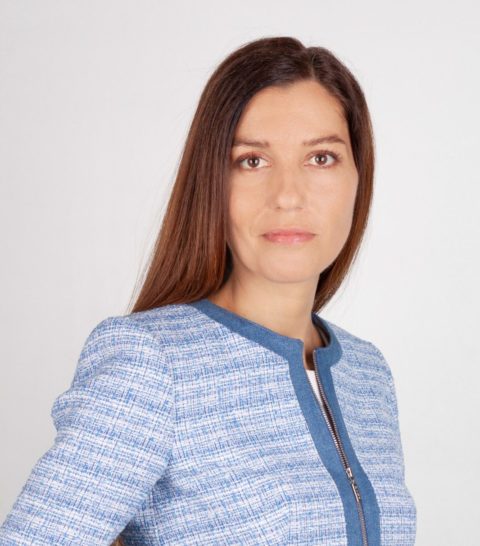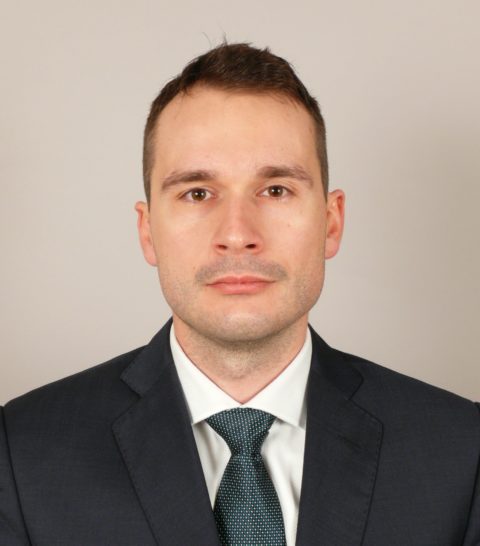New Anti Money-Laundering (AML) Legislation in Bulgaria
27 June 2019In March 2018, Bulgaria adopted a new anti-money laundering (AML) statute (Zakon za Merkite sreshtu Izpiraneto na Pari, Закон за мерките срещу изпирането на пари or Prevention of Money Laundering Act) (AML Act), implementing the Fourth EU Money Laundering Directive (MLD4). The new Act came in effect on 31 March 2018, however certain of its key implementation will not be in place until at least October 2018.
While previous European and Bulgarian AML legislation already covered certain of the ground covered in MLD4, one of the key innovations in MLD4 and in consequence in the Act is the obligation to collect and file information on what are referred to as ultimate beneficial owners (UBOs) of companies and other entities.
Businesses operating in Bulgaria now therefore need to identify and disclose such information about themselves and international businesses must appoint local nominated contacts for the purpose. Identifying single or multiple UBOs in a given situation may be complex.
Disclosure about UBOs is likely to be required by banks, notaries, lawyers and other “obliged entities”. Listed entities may in certain circumstances be exempt.
Certain ambiguities in the text of the transposition will likely encourage an overzealous application. In anticipation of the rollout of register of beneficial ownership in Bulgaria, it is likely that businesses will in any event carefully examine their positions and prepare for the practicalities of compliance.
1. The recent Prevention of Money Laundering Act
Bulgaria recently transposed the Fourth European Union Money Laundering Directive (MLD4) adopted in May 2015. In common with other member-states of the EU (e.g., Ireland), Bulgaria implemented MLD4 after the EU-wide deadline of 26 June 2017 had passed.
Although the AML Act came into effect on 31 March 2018, as we explain below further steps are needed and expected later in 2018 before MLD4 is effectively implemented.
Just as MLD4 had superseded the previous generation of EU AML legislation, the Third Money Laundering Directive, the new Prevention of Money Laundering Act (AML Act) substitutes in Bulgaria the previous statute of the same name dating from 1998.
As AML policy has been an active area of international and EU legislative interest, the Fifth EU Money Laundering Directive (MLD5) is already in place.
In this Note we take the perspective of businesses generally (Regulated Entities in the MLD4 jargon). Some of the information we provide may be of help to obliged entities, defined as a now expanded list of public and private service providers including financial institutions, pension funds, investment brokers, accountants, auditors, certain government bodies and many others (Obliged Entities).
Our update focuses on beneficial ownership and the obligations connected to identifying “beneficial owners” (such persons are commonly referred in the EU MLD jargon as UBOs), which is a key focus of strengthening disclosure obligations.
2. The obligations in respect of beneficial ownership information
Duty to collect and publish information on beneficial ownership
Post-MLD4, Obliged Entities must understand who ultimately owns and/or controls their customers.
This information must now be made available to Obliged Entities via a central register (but may also be required from a Regulated Entity by certain government agencies (FIUs)). The information on beneficial ownership helps form the basis of overall understanding of one’s customers for Obliged Entities – it is presumably easier to know your customer and its activities if you know who controls or owns them – but it is also made available for enforcement as necessary.
MLD4 is a ‘minimum harmonisation’ directive, and as such member states may impose stricter requirements. Certain member states (e.g., the UK) have decided to make the disclosure available to the public through the central registers (see below).
Who collects UBO information?
In order for Obliged Entities to comply with their information gathering obligations, they must (in the absence of other sources) obtain it from their Regulated Entity customers. Regulated Entities collect and supply the information to a “central register”. In the Bulgarian case, more than one such register is provided for.
The Central Registers
Depending on the type of the Regulated Entity, the respective Central Register in Bulgaria may be:
- The Company Register (for companies);
- The Register for Not-for-Profits (for certain registered not-for-profits);
- The “Bulstat” Register (a residual register catering for other legal persons and certain entities lacking legal personality).
The Act requires from both Regulated Entities and from their nominated persons (see below), to obtain, hold and provide “appropriate, precise and current” information relating to their UBOs including as to the rights held and/or enjoyed by the UBOs in the Regulated Entity.
3. Definition of a UBO in the Bulgarian AML legislation
A “beneficial owner” or “UBO” is defined in § 2(1) of the Additional Provisions of the Act as someone who ultimately owns or controls a legal person or another entity, or a person or persons on whose behalf a transaction, activity or operation is carried out, subject to detail in respect of certain classes of person. The definition was intended to transpose article 3(6)(a)(i) of MLD4 verbatim.
That an entity (e.g., a subsidiary) may be ultimately owned by a person seems understandable where this person owns or controls the parent of the subsidiary, and the parent owns 100% of the capital of the subsidiary. In practice, Obliged Entities are likely to apply this more widely – e.g., to parents who own less than 100% of a subsidiary (and to their owners in turn).
The third limb of the definition – on whose behalf an activity (or even a one-off event such as a transaction or operation) is carried out – seems vague. This is unlikely to be of practical significance though given that the first two limbs of the test are as wide as they are.
MLD4 exempts from the obligation to file with the Central Register in a number of situations. However, as the Act is unclear on the subject, the exemptions are unlikely to be as widely applicable.
One such instance of potential exemption concerns UBOs of the Bulgarian subsidiaries of listed multinationals.
The more sensible interpretation of MLD4 (which appears in the English text of MLD4), is that a Regulated Entity need not identify its UBO(s) where the UBO exercises control via an exempt listed entity. These listed entities include ones whose shares are admitted to trading on EU regulated markets or certain equivalent international ones (e.g., NYSE).
However, in the Bulgarian version of the text of MLD4 and in the Act, a different (even if counterintuitive) interpretation seems just as possible – that it is the Regulated Entity itself which would need to be admitted to trading on a relevant regulated market before it is exempt from providing the details of its UBO(s).
As a result, at least sometimes in Bulgaria, businesses may find themselves faced with demands by banks, notaries, government service providers, and competent government agencies to disclose the details of UBOs even where they ought to be exempt.
This likely unintentional divergence suggests there may be further areas of unexpected overregulation. The emerging practice of the authorities and of service gate-keeping Obliged Entities would need to be carefully observed. However, all of these are likely to err on the side of demanding more information rather than less.
Definition of control
In the scheme of the AML Act, someone is a UBO not only if they own a significant share of an entity (directly or indirectly) but also if they control that entity.
To define control, the Act refers to § 1c(1) of the Additional Provisions of another statute – the Commerce Act where control is what is exercised by a person (legal or natural) (“a Controlling Party”), where the Controlling Party:
- Holds more than 50% the voting rights in another entity; or
- May appoint more than half of the members of the managing or supervising body of another entity and is also a shareholder; or
- Has the right to influence another entity as a result of an agreement or of the articles of association of the entity; or
- Is a shareholder in another entity and holds more than half of the voting rights as a result of an agreement with the rest of the shareholders.
In addition, all opportunities to influence decisively key decisions of a Regulated Entity are also treated as control (§ 2(3)).
What if no UBOs can be identified?
Regulated Entities may well be aware of the identity of the person or persons who control(s) them or they (or rather their directors and staff) may have no means of knowing.
Making enquiries with direct, known shareholders and in public sources would seem obvious approaches and may be sufficient. However, it may be that such efforts are ultimately fruitless – or that there is simply no person or persons who may be said to exercise control and therefore be UBOs within the meaning of Act.
If, after having exhausted all possible means, no person is identified, or if there is doubt that the person identified is a UBO, the natural person(s) who hold(s) the position(s) of senior manager(s) must be deemed to be UBO(s) of the Regulated Entity and then must be listed as if they are UBOs.
The legislation is silent on the situation where one individual has been positively identified as a UBO and further individuals may be within the definition. Will the Regulated Entity in such a case still be obliged to list senior managers? Maximal compliance would appear to require this but on the other hand the purpose of such substitution seems to be to ensure that the obligation to list UBOs is not entirely avoided.
4. Nominated persons
In the different scenario where a Regulated Entity has no Bulgarian-resident directors, it must appoint a person who is a registered permanent resident of Bulgaria or a Bulgarian citizen to represent it for the purposes of its compliance obligations within the jurisdiction (Nominated Person). As we set out below, there is an associated obligation to keep the details of such a local contact person up-to-date in the Central Registers.
5. What information must be filed
The beneficial ownership information needed to be procured, held and filed with the relevant Central Register by a Regulated Entity is as follows:
1. Information relating to UBOs who are natural persons:
- full names;
- nationality(ies) held;
- (in the case of Bulgarian citizens) national ID number(s) incorporating their date of birth and for non-Bulgarian nationals – their date of birth only;
- the country of residence for UBOs, if this is neither Bulgaria or their country of declared citizenship.
2. Information about the legal persons or other entities through which direct or indirect control is exercised over the Bulgarian entity, i.e., the intermediate entities in the chain of beneficial ownership or control.
This includes:
- name;
- registered number in any national register;
- legal form in accordance with the law of the place of registration
- address of the corporate seat and address of management;
- the details required of UBOs as above, in relation to corporate “representatives”.
3. With respect to each Nominated Person, the personal details as above, except the information in 1e).
4. All required information must be kept up to date.
5. As above, the information gathering obligation includes details of the beneficial interests and/or rights held. There is no express obligation for this information to be filed with the Central Registers, however such obligation may be introduced in future in implementing regulations.
6. Because of the objective of risk based regulation under MLD4 (and the AML Act), the information to be collected (and respectively supplied on enquiries, etc) may be wider in scope than that described in points 1-5 above.
7. The Regulated Entity and Nominated Person may also be asked to supply further information (e.g., by an FIU).
6. Deadline for initial (and subsequent) compliance
The date on which the first filing is due is not yet set as the Act remains to be further implemented and consequential amendments in other legislation and the adoption of regulations pursuant to the Act are outstanding. The Additional Provisions of the AML Act envisage Central Register facilities to be made available by 1 October 2018. The implementing regulations are expected to be adopted by 31 August 2018.
The UBO information must be updated whenever it changes but there no obligation to confirm its continuing accuracy.
7. Consequences of non-compliance
Breaches on the obligation to maintain information can result in sanctions to the Obliged Entities which are considerable in quantum. The financial penalties go up to EUR 25,000 with further ramp-up for repeated or systematic violations to the range of millions of euros.












